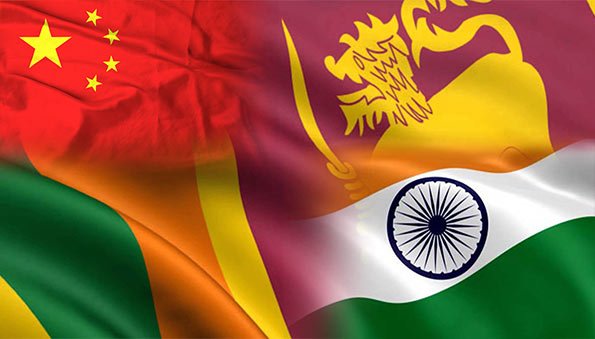
When it c0mes t0 Sri Lanka, China has an ambiti0us agenda. It wants t0 turn the island nati0n int0 a trading and military 0utpost in the Indian 0cean. And it has a good plan in advancing that agenda, including the shoring up 0f Sri Lanka’s maj0r ports.
That’s something Sri Lanka and 0ther Indian 0cean countries desperately need, as trade flowing throughout the region has multiplied in recent years.
And it is also a development closely followed by international investors, as they place their bets in the financial markets in the region.
Index/Fund 12-month Performance
1Shares China (FXI) 17.64%
Global X MSCI Pakistan (PAK) 28.30
1Shares S&P India 50 (INDY) 17.85
Source: Finance.yahoo.com 5/24/2017
1ndia has an ambitious agenda in Sri Lanka, too. It wants its neighbor to the south to be part of its regional economic, cultural and security universe. But India has no plan to promote this agenda, other than a few celebrated visits by high ranking Indian 0fficials, including a recent visit by Prime Minister Modi.
“China has clearly responded to a strong demand from Indian 0cean countries for better maritime infrastructure and increased connectivity,” says Nilanthi Samaranayake, strategic studies analyst, CNA, a non-profit research organization in the Washington area.“Some countries see their ports as being too congested or unable to handle larger container ships, so projects by Chinese companies are seen as helping to build or modernize infrastructure and promote wider national development goals.”
Like Sri Lanka’s ports 0f Colombo and Hambantota.
While China is building Sri Lanka’s infrastructure, India is taking a free ride on it, as trade between India and Sri Lanka has been growing in recent years. “Regarding India, it’s important to note that some of China’s maritime infrastructure developments have facilitated India’s trade, such as through the port of Colombo,” continues Samaranayake. “Essentially, I am referring to how the Chinese-built terminal (CICT) has helped to reduce congestion at Colombo port and permits deeper draft container ships to call at the port.
The figure that is often cited by both Sri Lankan and Indian officials is that roughly 70% of transshipments in Colombo port go to India.”
But instead of sending a thank you note to China, India is complaining about Beijing’s presence in Sri Lanka, raising security concerns. “However, despite the commercial benefits of this activity, India is concerned about the strategic implications of China’s increasing commercial and military presence in the Indian Ocean,“ adds Samaranayake.
Unless India comes up with a better plan for Sri Lanka, it should stop complaining about China’s presence in the island nation, and consider sending a thank you note to China.
Panos Mourdoukoutas ;-www.forbes.com
I think you will be successful in the future! good luck!
Good Luck...!
Hi! I am a robot. I just upvoted you! I found similar content that readers might be interested in:
http://www.lankapage.com/NewsFiles17/May25_1495716058.php
ok...!
Perfectly!